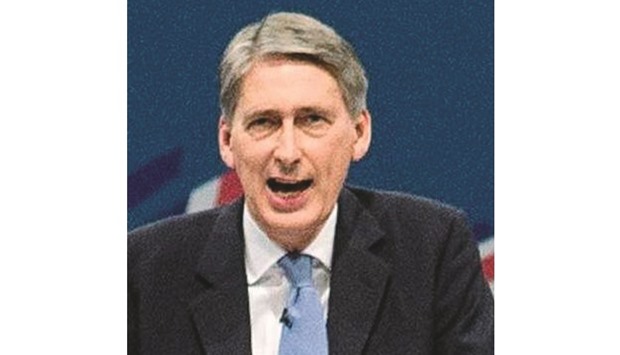Philip Hammond yesterday admitted that Brexit negotiations could take longer than two years.
The chancellor appeared to contradict Theresa May, who on Tuesday said a deal would be reached by 2021.
Speaking at the World Economic Forum in Davos, Hammond said interim arrangements will be put in place if discussions “haven’t quite got there” within the two-year deadline.
His words will please City chiefs who are worried a complex deal giving the financial sector access to European markets could take longer to strike.
May has said she will avoid a “cliff-edge” of change by allowing periods for adjustment after 2021, but on the basis of deals concluded by then.
The chancellor implied negotiations could carry on in some areas. He said: “If we are making good progress but haven’t quite got there we will simply agree Britain will leave the EU and we will agree some interim arrangements while we complete the discussion.
“But we think it can be done in two years if there is a political will on both sides to reach agreement on our exit and at least agreement on the broad principles of the end state that will exist between the UK and the EU.”
The European Commission has said Britain cannot have talks on market access until it signs of up a “divorce” settlement including a bill of £50bn in future payments.
Hammond said quitting within two years was a “political necessity” but conceded the need for political will in Brussels. Taking part in a panel discussion, he said the “strong preference” he and May shared was to secure a comprehensive free trade agreement with the rest of the union.
Citing investments by Google, Apple and Japan’s SoftBank, he said the UK was seen as “a buying opportunity” because of the lower pound “and the fact that fundamentally we are still a large market with 65mn affluent consumers”.
Hammond added that post-Brexit Britain will keep its doors open to skilled foreigners who attend the best universities.
Hammond made his assurance after he was confronted by an Oxford University professor about the potential fallout of Britain’s divorce from the EU on research and academia.

Philip Hammond
